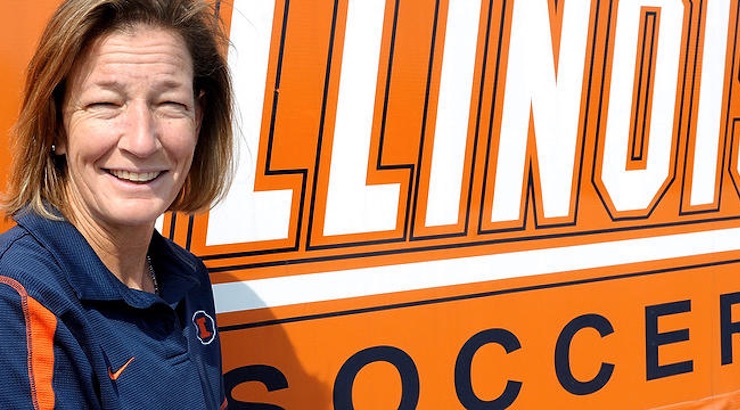University of Illinois’ Janet Rayfield on the Growth of Women’s Soccer
Janet Rayfield is a leader in women soccer and has dedicated years growing the beautiful game. As the head coach of the University of Illinois women’s team for years and was the U.S. Soccer U23 Head Coach for 2015 and 2016 — Rayfield is actively shaping the future of the women’s game.
With the responsibility of developing players for the Fighting Illini and Jill Ellis’ first team, Rayfield’s goal has always been to help elite players be better.
Related Article: Women in Soccer 2017 Symposium
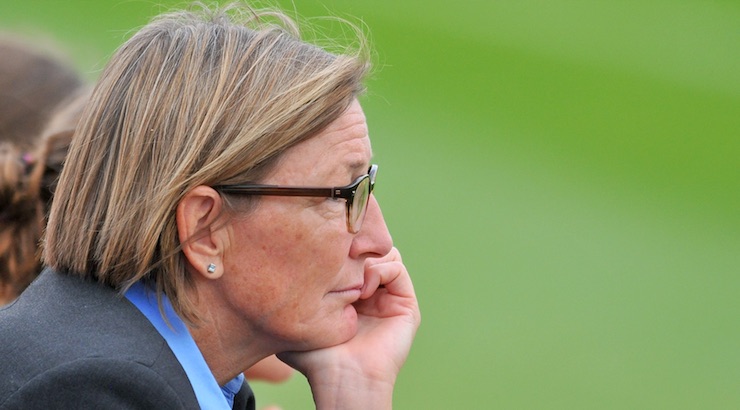
Soccer News: Janet Rayfield is a coach’s coach. A United States Soccer Federation ‘A’ Licensed Coach.An expert at developing players and winning tough games, Rayfield is a leader in women soccer.
As U.S. Soccer’s choice to lead the Women’s U23 team for 2015 and 2016 seasons, Rayfield worked directly with her players to help prepare our country to win future World Cups.
In her 14 seasons as head coach of the University of Illinois women’s soccer, Rayfield has established a program that continues to reach accolades with professional talents making their way through the ranks.
Rayfield has led the program to the NCAA Tournament in 10 of her 14 seasons, highlighted by its fourth Sweet Sixteen appearance in 2013.
Rayfield played college ball herself at the University of North Carolina from 1979-82 where she was a member of the first women’s soccer team in UNC history. She led the Tar Heels to the 1981 AIAW National Championship and a 23-0 record during her junior year. That season, Rayfield was awarded Nike Player of the Year honors, All-America honors and was named one of the top 10 soccer players in the United States — male or female. During her collegiate career at UNC, Rayfield was a captain all four years and led the Tar Heels to its first-ever NCAA women’s soccer championship.
Always a trail blazer, Rayfield also served as President of the NSCAA and she continues to assist at the youth national team level whenever possible. Rayfield is an United States Soccer Federation ‘A’ Licensed Coach.
SoccerToday’s Diane Scavuzzo interviewed Rayfield on what inspires her and the growth of women’s soccer.
Diane Scavuzzo: First of all, thank you for speaking at the Women In Soccer 2017 Symposium on January 10 in LA.
Janet Rayfield: I am honored to be invited because of how great it was last year and, I think important right now.
It’s important to fight for the women’s side of the game.
Diane Scavuzzo: What inspires you?
Janet Rayfield: I think individuals have inspired me. I was really lucky to have some great coaches along the way. I continue to be inspired by people’s passion for the game. I’ve been fortunate to travel and see the world through the game. I’ve seen world cups in multiple countries and have seen the passion for the game grow.
And, of course, my father inspired me — he coached all of us as young children – I’m one of seven children.
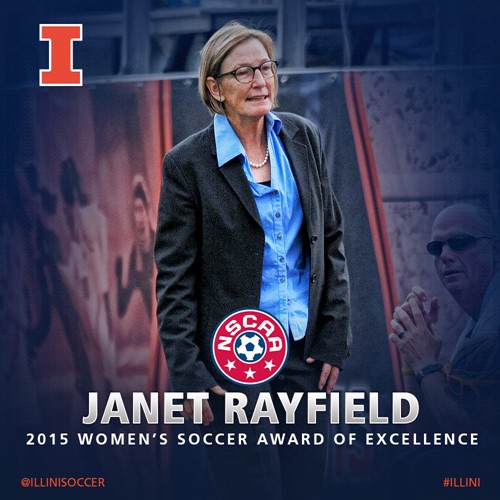
Diane Scavuzzo: When you were youth soccer player — did you dream of playing soccer in college and becoming a coach?
Janet Rayfield: There weren’t really college soccer programs at the time. My freshman year at North Carolina was the first year they had a varsity women’s soccer program. The college didn’t make that decision until the summer before I started college. I was probably going to try and walk-on to a volleyball team – a sport I wasn’t nearly as good at. Carolina made the decision to start the program and through some youth soccer contacts, Anson Dorrance reached out to me that July. He likes to call me his first recruit.
Dorrance changed the course of my college experience. I was committed to a small, Jesuit school in Colorado and within a month’s time, the direction of my life had changed and I was off to Chapel Hill. It’s kind of one of those events that you look back on and say, “Wow what if that had never happened.”
Diane Scavuzzo: What do you think surprises people about you the most?
Janet Rayfield: I think it my competitiveness surprises people — at this point in my career, I think I am much more level-headed and don’t ride the roller coaster as much as I once did. My competitiveness is certainly more hidden than it used to be.
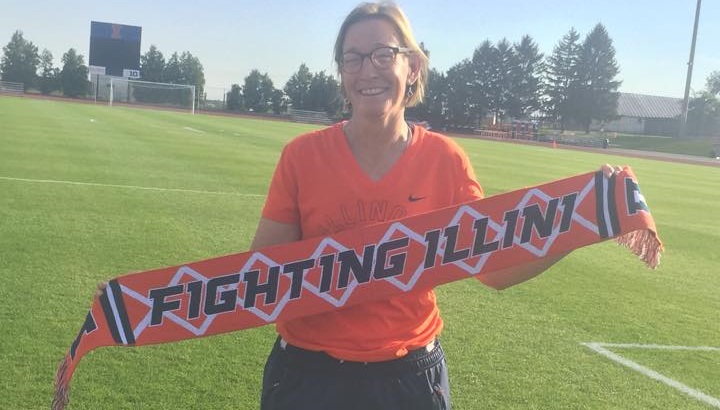
Diane Scavuzzo: What are you most proud of?
Janet Rayfield: I don’t know if proud is the right word, but what I value about being in this profession is the opportunity to impact young people’s lives.
When players go on and become successful and then call me and say, “When I was struggling, I looked back on the time when I was coached by you and my experience really helped me get through….”
I think those type of things are what you really smile about and you feel grateful with pride that you were able to be a positive impact in someone’s life.
I think that’s the piece of this profession that I value the most. I think those moments give me a great sense of satisfaction and pride.
Diane Scavuzzo: What challenges do you think women face that men do not?
Janet Rayfield: I think women are held to a standard of physical appearance that’s different than men.
I think the knowledge of the game isn’t assumed — as it is for male counterparts.
But, on the personal side of things, I think a lot of women struggle with the responsibility that they feel to the other people in their life and this can make it a real challenge to navigate this profession. Not just the time-demanding challenges but the emotional investment that is given to the sport.
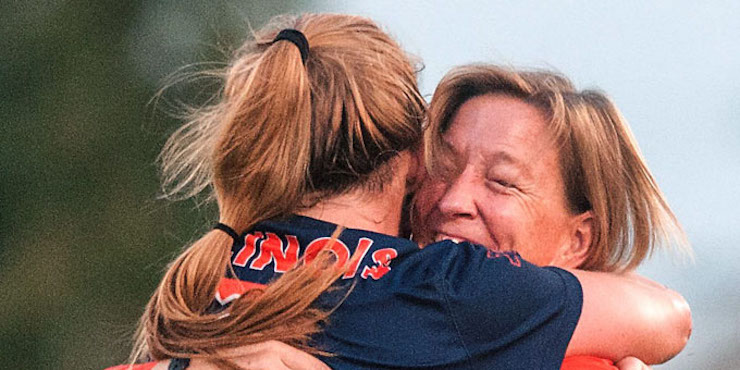
Diane Scavuzzo: So, the weight of raising a family vs dedicating your time to the developing players and the game — that can be a challenge?
Janet Rayfield: At the college level, that is not always necessarily the case, things are a little bit more flexible. I think at the youth ranks, it’s a challenge because of the after school hours and the weekends spent coaching. But, it’s also just the emotional investment that you make in the athletes that you work with. It can certainly take away from the emotions you have with your family and kids.
I think women struggle with that more than their male counterparts, not because men don’t feel this way, but because they get a little more social support for making those kinds of decisions and don’t face the same social stigma.
I think women who make these decisions are looked at differently than the women around them who make different decisions. They face that social stigma — it’s not that men are less responsible about their families. It’s just that they don’t face the same social stigmas.
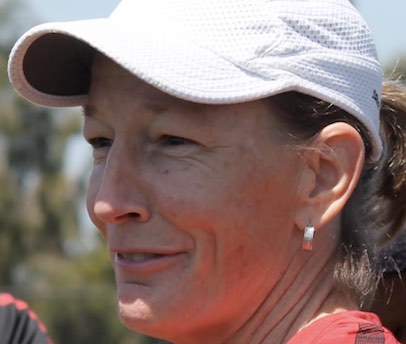
Diane Scavuzzo: Is that something that women face no matter what chosen profession?
Janet Rayfield: I think that people do think coaching is a little bit more of a choice that you do not because it’s a living but that it’s a hobby. I think some people see it that way. I think coaching is slowly becoming something that people consider a true, valid profession.
Diane Scavuzzo: Do you think that women in soccer help each other enough?
Janet Rayfield: I think women in general don’t help each other enough.
When young women get into coaching, they face many challenges. We can help bridge between the excitement when you started off down this path and when you become really comfortable with it as a career — that is where young women can really use the help of others.
I think that we don’t ask for help enough. I think we tend to see that as a sign of weakness. Or a sign of inability.
Diane Scavuzzo: How can we change that?
Janet Rayfield: I think it’s a cultural thing and that it’s true across the spectrum. I think we have to be a little bit more vulnerable as women in the profession.
We have to be able to show our scars so that we can help each overcome them.
We have to speak about the challenges, and I think there is a vulnerability in just doing that — and we have to start to be okay with it.
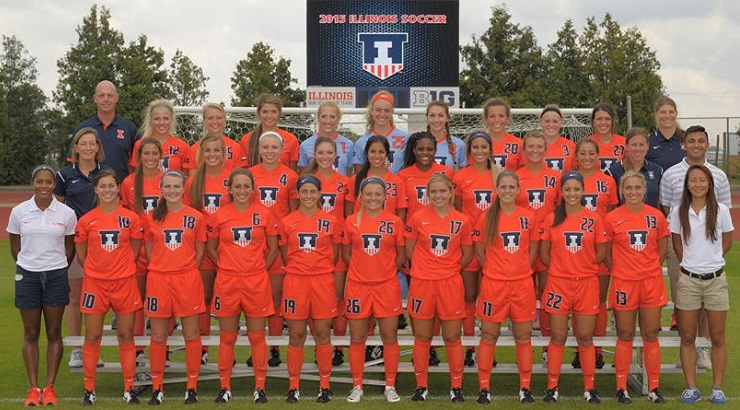
Diane Scavuzzo: We have to show our vulnerability, isn’t that exactly what we’re afraid of doing though?
Janet Rayfield: Men are more comfortable demonstrating a professional vulnerability — maybe because they’re not judged as harshly. The perception is that men know their stuff and they can make a mistake.
When women make a mistake, it can be perceived as if they are not knowledgeable. There is that extra vulnerability that keeps us from having those same kinds of conversations.
I think that’s where women can support each other. I think that’s where we can create an environment where it is understood that you are a knowledgeable coach. Therefore, you can ask those difficult questions and it isn’t going to make anyone think of you as someone who doesn’t understand. Asking questions makes me think someone is really trying to learn and get better.
Diane Scavuzzo: What traits does a female coach need to survive?
Janet Rayfield: I think resiliency is critical and its source is often passion.
I think grit is a sort of the term of the moment. I think you have to be willing to fail, you’re going to lose some games.
I think women have to be resilient — there are always ups and downs. Finding your sweet spot as a coach in important and discovering what works for you — that’s a windy road.
I think passion for what you do — not just passion for the game, but as an educator — is extremely important.
Diane Scavuzzo: What are your thoughts on the NWSL?
Janet Rayfield: I think it’s one of the most important pieces for the growth of our sport and a vital part for keeping our USWNT competitive internationally.
To have that as an opportunity to play in a professional league is also imperative for players who haven’t reached their peak when they’re out of college and they want to continue to pursue a national and international career.
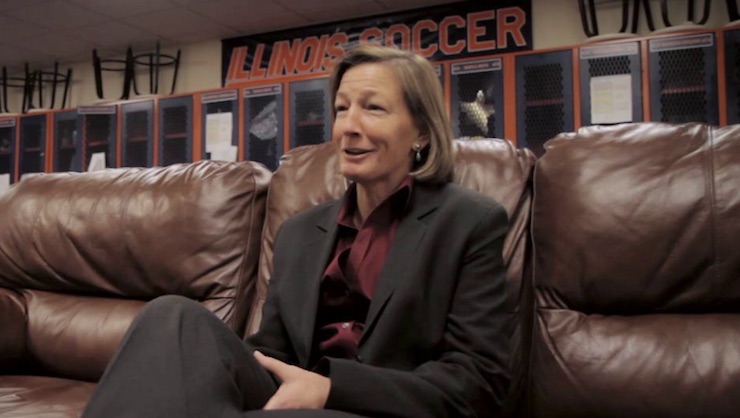
Diane Scavuzzo: What’s been your greatest obstacle?
Janet Rayfield: I think as I have matured as a coach, it really is staying true to myself in this competitive environment. I think there are people in every profession that operate and function with integrity and then there are those that don’t. I think there is a constant challenge to make sure that winning isn’t the motivation behind the decision. This can be in recruiting and/or decisions you make on your team. You should make decisions based on the good of a human being before you make decisions for the good of the result.
Diane Scavuzzo: If you could have one superpower, what would it be?
Janet Rayfield: I would want to be able to stop time.
Related Article: UNM’s Heather Dyche on What it Takes to Make It as A Woman in Soccer; UW’s Lesle Gallimore on Women in Soccer – Women Fight for Credibility
Photo Credit: Fighting Illini

